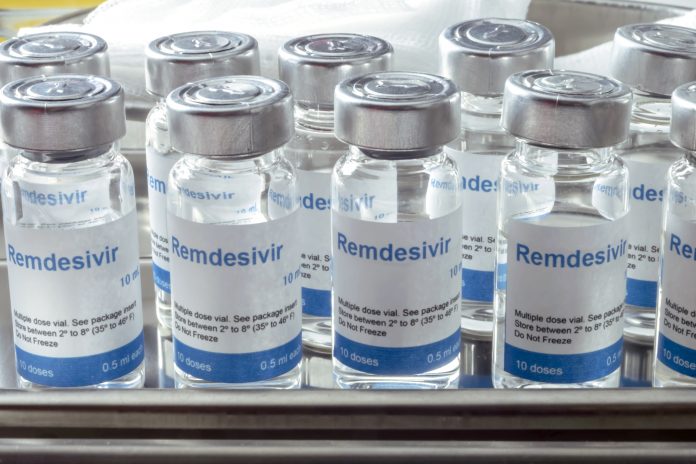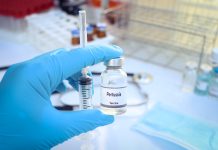A combination of remdesivir and drugs for hepatitis C virus (HCV) have presented strong effectiveness against COVID-19 in a new study
Researchers from Icahn School of Medicine at Mount Sinai, the University of Texas at Austin, and Rensselaer Polytechnic Institute (RPI) performed protein binding and viral replication studies on SARS-CoV-2 using remdesivir and 10 hepatitis C drugs.
Using a supercomputer to model how drugs bind to viral proteins, the RPI researchers predicted that the 10 HCV drugs could bind to the SARS-CoV-2 Main protease, named Mpro. In addition, they showed that seven of these drugs actually inhibited the SARS-CoV-2 protease.
The research team at Icahn Mount Sinai then tested whether these seven drugs would inhibit SARS-CoV-2 virus replication in monkey and human cells grown in culture.
In future experiments, the researchers found that four HCV drugs inhibited a different SARS-CoV-2 protease, known as PLpro. When each of the seven HCV drugs were tested in combination with remdesivir, only four of the drugs boosted the efficacy by as much as 10-fold.
HCV drugs
That four HCV drugs included simeprevir, vaniprevir, paritaprevir, and grazoprevir.
Adolfo Garcia-Sastre, PhD, one of the authors on the paper, Irene and Dr. Arthur M. Fishberg Professor of Medicine. and Director of the Global Health and Emerging Pathogens Institute at Icahn Mount Sinai, said, “Combined use of remdesivir with PLpro inhibitors for the treatment of COVID-19 could be a game changer for patients with COVID-19 who are not vaccinated. It could also reduce the possibility of selecting SARS-CoV-2-resistant viruses.”
“The identification of PLpro as an antiviral target that has a synergistic effect in combination with remdesivir is a very important finding. We hope this work will encourage the development of specific SARS-CoV-2 PLpro inhibitors for inclusion in combination therapies to produce a highly effective antiviral cocktail that may potentially prevent the rise of resistance mutations,” said Kris White, PhD, Assistant Professor of Microbiology at Icahn Mount Sinai.
“Because these HCV drugs are already approved for use and their potential side effects are known, such a combination therapy could be tested in humans more quickly than for a new drug,” said Robert M. Krug, PhD, Professor Emeritus of Molecular Biosciences at The University of Texas at Austin and co-corresponding author of the paper.
“Our goal is to develop a combination of oral drugs that can be administered to outpatients before they are sick enough to require hospitalization,” added Krug. “The HCV drugs that enhance remdesivir’s antiviral activity are oral drugs. It is important to identify oral drugs that inhibit the SARS-CoV-2 polymerase in order to develop an effective outpatient treatment.”
“Nearly 3 million people have died worldwide from COVID-19. There are situations where the vaccine isn’t the best option and it would be helpful to have orally available antivirals,” said Gaetano Montelione, PhD, a member of the Rensselaer Center for Biotechnology and Interdisciplinary Studies (CBIS). “Here we see a promising synergy that, if confirmed through additional research and clinical trials, could provide a new antiviral to combat COVID-19.”
The full study has been published in Cell Reports. Find more here.











